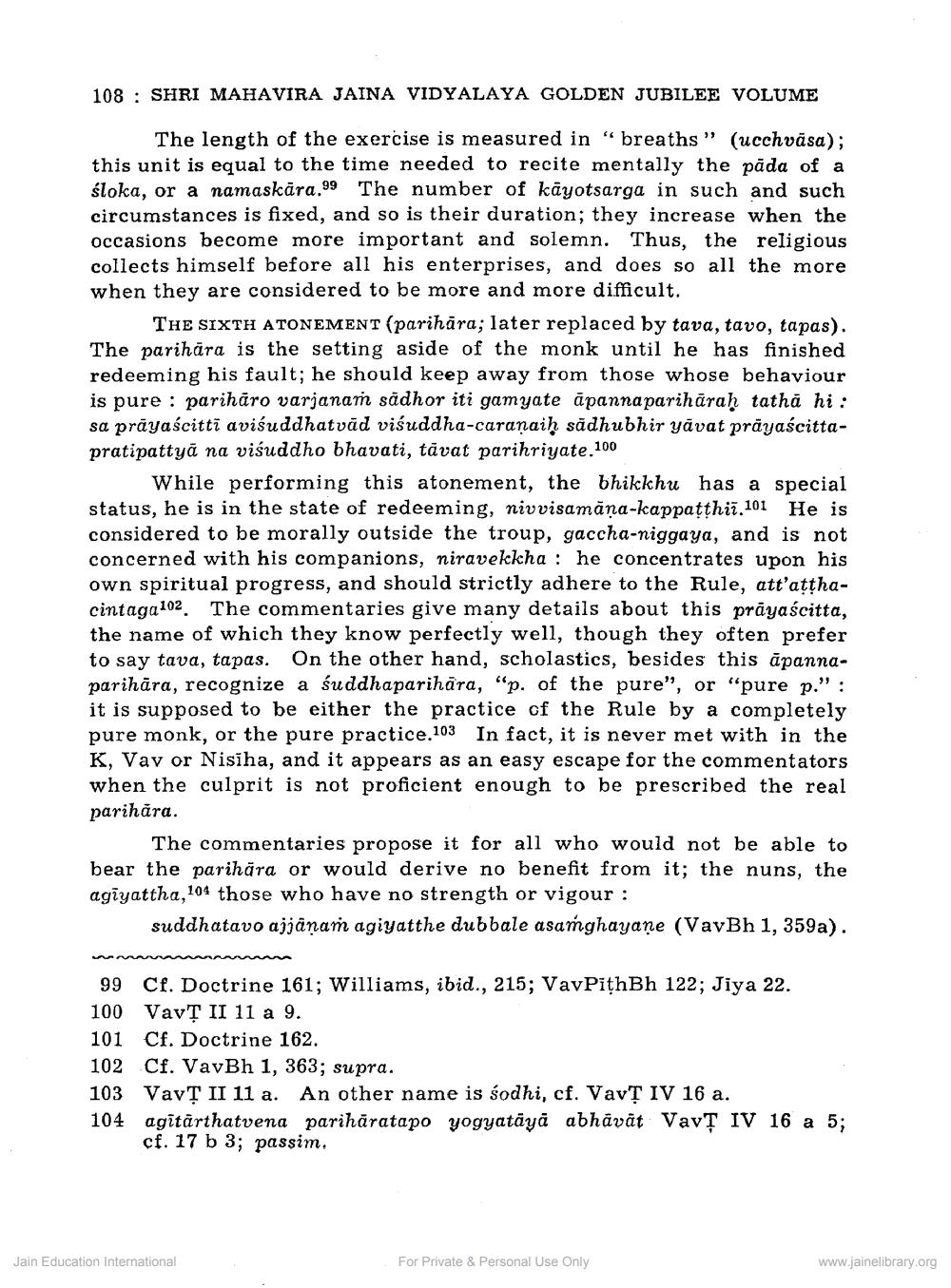________________
108 : SHRI MAHAVIRA JAINA VIDYALAYA GOLDEN JUBILEE VOLUME
The length of the exercise is measured in "breaths" (ucchvása); this unit is equal to the time needed to recite mentally the päda of a śloka, or a namaskara.99 The number of kāyotsarga in such and such circumstances is fixed, and so is their duration; they increase when the occasions become more important and solemn. Thus, the religious collects himself before all his enterprises, and does so all the more when they are considered to be more and more difficult.
THE SIXTH ATONEMENT (parihāra; later replaced by tava, tavo, tapas). The parihāra is the setting aside of the monk until he has finished redeeming his fault; he should keep away from those whose behaviour is pure : pariharo varjanam sādhor iti gamyate apanna pariharah tathā hi : sa prāyascitti aviśuddhatvād viśuddha-caranaiḥ sādhubhir yāvat prayascittapratipattyā na viśuddho bhavati, tāvat parihriyate.100
While performing this atonement, the bhikkhu has a special status, he is in the state of redeeming, nivvisamāna-kappatthii.101 He is considered to be morally outside the troup, gaccha-niggaya, and is not concerned with his companions, niravekkha : he concentrates upon his own spiritual progress, and should strictly adhere to the Rule, att'atthacintaga102. The commentaries give many details about this prāyaścitta, the name of which they know perfectly well, though they often prefer to say tava, tapas. On the other hand, scholastics, besides this āpannaparihara, recognize a suddhaparihara, "p. of the pure", or "pure p." : it is supposed to be either the practice of the Rule by a completely pure monk, or the pure practice.103 In fact, it is never met with in the K, Vav or Nisiha, and it appears as an easy escape for the commentators when the culprit is not proficient enough to be prescribed the real parihara.
The commentaries propose it for all who would not be able to bear the parihāra or would derive no benefit from it; the nuns, the agīyattha, 104 those who have no strength or vigour :
suddhatavo ajjanań agiyatthe dubbale asanghayane (VavBh 1, 359a). woman
99 Cf. Doctrine 161; Williams, ibid., 215; VavPithBh 122; Jiya 22. 100 VavŢ II 11 a 9. 101 Cf. Doctrine 162. 102 Cf. VavBh 1, 363; supra. 103 VavŢ II 11 a. An other name is sodhi, cf. VavȚ IV 16 a. 104 agitarthatvena parihāratapo yogyatāyā abhāvāt VavȚ IV 16 a 5;
cf. 17 b 3; passim.
d
.
Jain Education International
For Private & Personal Use Only
www.jainelibrary.org




